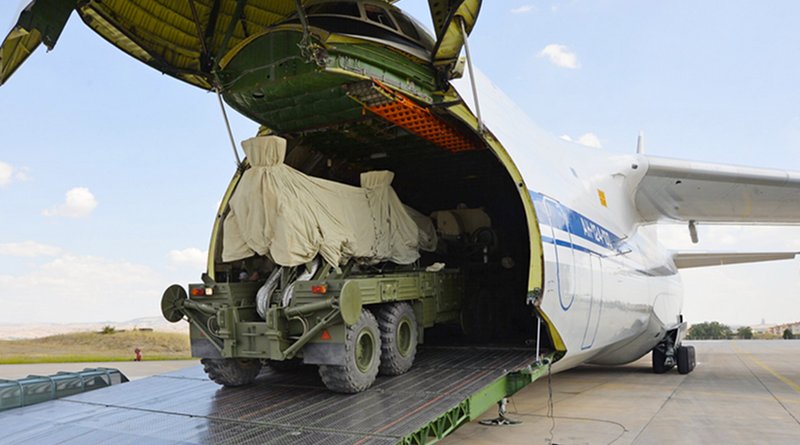NATO Leaders Ramp Up Pressure On Turkey Over S-400 Missile System
By Arab News
By Sarah Glubb
A missile defense system bought by Turkey from Russia is “in no way compatible” with NATO’s defense, the alliance said after a fractious meeting near London came to an end on Wednesday.
Ankara’s purchase of the S-400 system and recent testing on US-made jets has strained relations with Washington and other NATO members.
The 70th anniversary meeting was also overshadowed by Turkey’s military offensive into northern Syria and an agreement with one of Libya’s warring administrations over maritime borders in the Mediterranean.
Turkey has in the past been seen as an important regional NATO member, offering a base for US military planes and nuclear payloads. But some experts say Turkey’s actions are making it increasingly incompatible with other NATO countries.
Speaking after the meeting, NATO Secretary General Jens Stoltenberg, made clear that the purchase of the missile defense system from Russia was in no way compatible with the alliance.
“That’s a national Turkish decision. Many allies have expressed concerns, I have also expressed my concerns about the consequences of that decision,” Stoltenberg said.
“A Russian air defense system, S-400, will never be integrated into NATO. It will never be part of the NATO integrated air and missile defense system.”
The US has repeatedly expressed its displeasure at the purchase, especially after Turkey started to test them against American supplied F-16 jets last month. The US has already punished Turkey by kicking it out of the F-35 joint strike fighter program. Trump said on Tuesday he was looking at imposing sanctions on Turkey over the missile system.
“The acquisition of these weapons is inconsistent with Turkey’s obligations to NATO and President Trump was clear when he met with Erdogan last month and told him that this was unacceptable and inconsistent with Turkey’s obligations,” Christiaan James, director of the Media Hub at the US Embassy in London said.
Turkey’s operation, launched in October against Kurdish militants in northern Syria, was also under scrutiny during the meeting at a hotel in Watford, just outside of London. Turkish President Recep Tayyip Erdogan had wanted NATO to recognize the Syrian Kurdish People’s Protection Units (YPG) as terrorists, saying he would block an update to defense plans for the Baltic states and Poland if the alliance did not back him.
But after meetings between Erdogan, Trump and others, Turkey backed down and dropped its objections.
French President Emmanuel Macron has been particularly vocal in his criticism of Turkish policy in Syria.
On Wednesday, those differences appeared unresolved by the meeting, with Macron saying they would have to “agree to disagree” over Turkey’s branding of Kurdish militias in Syria as “terrorist groups.”
“I don’t see any possible consensus,” Macron said.
James said the US also expressed its concern about the incursion into northern Syria.
“We are cooperating and talking with the Turks about it, but there are differences in vision between Turkey and the United States, and this is a natural matter,” he added.
German Chancellor Angela Merkel, painted a more positive picture of the summit, which, despite some awkward exchanges in the build-up between Macron and Trump and the US president’s anger at a conversation between some leader’s mocking him, appeared to have been more successful than the disastrous event in 2018.
“The issue of defense planning for the Baltic states and Poland was also accepted by Turkey,” she said. “That was an important step. Before the meeting began, there was still disagreement.”
She said she had discussed with Macron, Erdogan and British Prime Minister Boris Johnson a proposal put forward for a UN Security Zone in northern Syria that could allow refugees to return to the area from Turkey.
“We talked about the need for the United Nations, in particular the United Nations High Commissioner for Refugees, to play a role in this process. After all, we can not accept that refugees go to an area that does not conform to the standards that the UN accepts,” she said.
Merkel added that Turkey was in discussions with the UNHCR, but said she “believes there can be no return at present to areas controlled by Syrian forces.”

